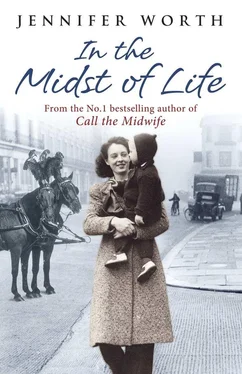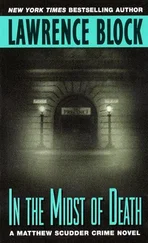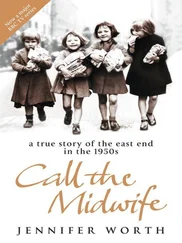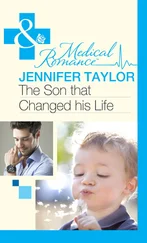Jennifer Worth - In the Midst of Life
Здесь есть возможность читать онлайн «Jennifer Worth - In the Midst of Life» весь текст электронной книги совершенно бесплатно (целиком полную версию без сокращений). В некоторых случаях можно слушать аудио, скачать через торрент в формате fb2 и присутствует краткое содержание. Жанр: Биографии и Мемуары, на английском языке. Описание произведения, (предисловие) а так же отзывы посетителей доступны на портале библиотеки ЛибКат.
- Название:In the Midst of Life
- Автор:
- Жанр:
- Год:неизвестен
- ISBN:нет данных
- Рейтинг книги:3 / 5. Голосов: 1
-
Избранное:Добавить в избранное
- Отзывы:
-
Ваша оценка:
- 60
- 1
- 2
- 3
- 4
- 5
In the Midst of Life: краткое содержание, описание и аннотация
Предлагаем к чтению аннотацию, описание, краткое содержание или предисловие (зависит от того, что написал сам автор книги «In the Midst of Life»). Если вы не нашли необходимую информацию о книге — напишите в комментариях, мы постараемся отыскать её.
In the Midst of Life — читать онлайн бесплатно полную книгу (весь текст) целиком
Ниже представлен текст книги, разбитый по страницам. Система сохранения места последней прочитанной страницы, позволяет с удобством читать онлайн бесплатно книгу «In the Midst of Life», без необходимости каждый раз заново искать на чём Вы остановились. Поставьте закладку, и сможете в любой момент перейти на страницу, на которой закончили чтение.
Интервал:
Закладка:
The students sat nervously in their seats. No one spoke, no one put his feet up, no one even chewed gum. They were obviously feeling uncomfortable. Elisabeth introduced the girl, explained her condition, and said that she had generously and bravely volunteered to answer their questions on what it was like to be terminally ill, and to know that you have only a short time to live. There was a slight rustle as people shifted awkwardly in their seats, and then there descended a quiet so profound it was disturbing. Elisabeth asked for volunteers but no hand was raised, so she selected a number of students, called them on to the stage so that they would be close to Linda, and instructed them to ask questions. All that they could think of was muttered questions about her blood count, the size of her liver, and other clinical details.
Until then, Linda had been calm and was even smiling, but at that point she lost all patience with the students, and in a passionate fit of anger the floodgates of her frustration and loneliness opened.
‘That’s all you people ever think of – tests, tests, tests. No one ever thinks of me, as a person. You people hide behind your tests and charts so that you don’t have to talk to me. Me, who is dying, who is younger than any of you, but will never go to college, never go out on a date, never get married and have children. No one ever talks to me, to try to know my thoughts and feelings. Until Dr Ross came the only person who wanted to talk to me was the black cleaning lady in our block. She is very poor, and all her people are poor. She was never taught to read or write, but she understands me and sees what I am going through, and she tells me not to be afraid – death is an old friend for her people, and is not so very frightening. Until Dr Ross came she was the only person who talked to me.
‘You people never talk to me. You stand by the bed and talk about me, as though I wasn’t there, and call me “she”. You won’t even look me in the eye. Are you afraid of me? Am I infectious? Do you people think you will catch death off me if you come too close? Even my family can’t mention the subject. If I try to speak of my dying to my mother, she changes the subject. Does she think I’m morbid or unnatural to think about death, when it’s with me every minute of every day? Do you know, she even put an article in the paper, advertising my leukaemia, and asking people to send me “Happy Sweet Sixteen” birthday cards. Hundreds of silly cards came to the hospital, all from strangers.’
She held up her frail arms to her spellbound audience, her cheeks flushed with anger and her eyes bright. ‘I don’t want silly meaningless cards. All I want is someone who understands what I am going through, who shows me they want to be with me, and who can tell me what is going to happen when the time comes for me to die.’
Linda was exhausted, so Elisabeth wheeled her back to her bed, and when she returned to the auditorium something had happened to the students. They were sitting absolutely still, in stunned, almost reverential silence. Some had been moved to tears. Elisabeth knew that no further words were needed. The girl had said it all.
The impact Linda had on the students quickly resonated throughout the University Hospital, and when she died, her short life had not been in vain, because the lessons she taught on that memorable day became a new teaching in the medical world.
Elisabeth was asked to conduct more seminars in the same way, by interviewing dying patients in public lectures. Over the next five years, hundreds of people volunteered. The auditorium was always packed, and a larger venue had to be found. It was a completely new departure in medical teaching. Some said it was exploitative of vulnerable people, others that it was tasteless and unnecessary. Indeed, most of her colleagues were hostile to what she was doing, and her audience was mostly made up of medical and theology students, nurses, paramedics of all disciplines, sociologists, priests, rabbis and counsellors.
Elisabeth became a powerful lecturer. There was something about her that was magnetic. Perhaps it was the sincerity of her passion and conviction, mingled with a waspish wit and pithy humour; perhaps it was her ruthless honesty. Who can say, exactly? But whatever it was, with her incisive attack, and cut-glass delivery, she made a tremendous impact.
Her fame began to spread, and in 1969 Macmillan Publishing asked her to write a book. Her mind was so full of the mental, emotional and spiritual needs of dying people, that she completed the book in two months. When it was finished, she realised that it was exactly the kind of work she had hoped to find in the university library when she was researching her first lecture.
On Death and Dying is still considered to be the master text on the psychology of the subject. It is required reading at medical and nursing schools and is recommended reading for most graduate schools of psychiatry, analytical psychology, theology and sociology.
On Death and Dying is such an extraordinary book that it would be futile for me to try to describe it; such an attempt would only distort and diminish it. It is written with passion – and a depth of understanding that could never be summarised. The best advice I can give anyone is to read it for yourself, and to read between the lines as well as the words on the page. It is written in beautiful English, easy to understand, by a psychiatrist who has studied in depth the mental turmoil that goes on in the human mind as the knowledge of impending death draws closer. It is full of insights into our thought process – shock, disbelief, anger, fear, depression and loneliness. Hope is explored, and the meaning and purpose of life. Most important of all, is the final reconciliation and acceptance. The integrity of the work is indisputable, because much of it has been taken from the public lectures or interviews she gave with dying patients – all of which were recorded by the hospital authorities. Some of the accounts are so moving it is scarcely possible to read without tears. And virtually all of them hold up a mirror in which we can see ourselves, and our loved ones, in the final chapter of life.
By 1980, medical science predicted that within a couple of decades doctors would be able to conquer all disease. Then, in 1981, a brief paragraph in the American Morbidity Report referred to the death of forty-two young men in New York from an unknown disease that appeared to be related to faults in the immune system. By 1983, thousands of such deaths had been reported. The AIDS epidemic had hit a horrified and terrified America. By 1985, babies were being born with AIDS.
Elisabeth was sixty, retired from hospital work, but running clinics, retreats and workshops for the dying in her own property in Virginia. She had around twenty acres of land, with large buildings and numerous helpers. In 1986 she received a letter scribbled on a torn scrap of paper:
Dear Dr Ross,
I am dying of AIDS. I have a baby son who has AIDS, and I can no longer take care of him. No one will take him or touch him. How much would you charge to take care of him?
Elisabeth took the child for no charge and cared for him herself. A stream of letters from desperate parents arrived in her mailbox that year, all saying much the same thing – no one would take the children. One mother said that she had approached more than seventy agencies and been turned down by them all. She died without ever knowing her daughter was safe.
Elisabeth, ever emotional, ever passionate, boiled with rage at the paranoia in society, which impelled people to turn their backs on these children. She opened up her home and made it into a hospice for AIDS babies. The respectable and wealthy community of Virginia was in uproar over her work. They called her the Antichrist, the AIDS lady who was trying to bring this dreadful disease into their homes. A town meeting was called and thousands of people tried to get into the tiny Methodist church; they tried to force closure of the hospice, they yelled and booed and hissed, and refused to listen to reasoned speakers. The police closed the meeting at midnight, and Elisabeth was given a police guard to prevent a lynching.
Читать дальшеИнтервал:
Закладка:
Похожие книги на «In the Midst of Life»
Представляем Вашему вниманию похожие книги на «In the Midst of Life» списком для выбора. Мы отобрали схожую по названию и смыслу литературу в надежде предоставить читателям больше вариантов отыскать новые, интересные, ещё непрочитанные произведения.
Обсуждение, отзывы о книге «In the Midst of Life» и просто собственные мнения читателей. Оставьте ваши комментарии, напишите, что Вы думаете о произведении, его смысле или главных героях. Укажите что конкретно понравилось, а что нет, и почему Вы так считаете.












